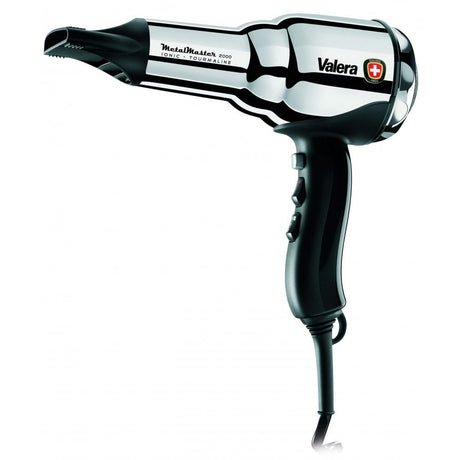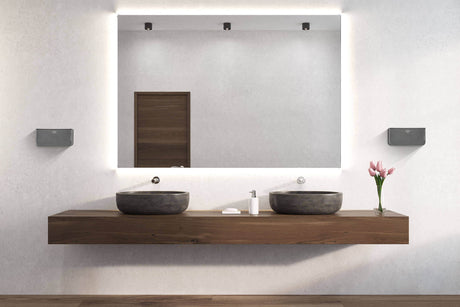The world of installation and maintenance of hand dryers has just got a whole load easier with the plug-in system installation back plates being brought in.
The electrical installation of a hand dryer is a fairly simple job for an electrician but what about those tasked with maintaining the product after its been fitted, in many locations there simply isnt anyone on site with the necessary training to deal with a fault.
With your standard installations, you have electrical wires going into the back of a hand dryer from the fuse spur. It can be quite the awkward and frustrating process trying to attach these wires to the internals of the machine, whilst also balancing the unit in one hand and screwing wires in the machine’s components at the same time. So, with a plug-in system, the wiring goes into a separate back plate and this is fitted to the wall beforehand. And then the unit is simply just plugged into the back plate, and the machine screwed into the back plate, and there you have it!
The benefits of this type of installation
- Installing the back plate can occur before the other work is carried out. The hand dryer unit tends to be the last thing to go in which can hold things up when signing off new washrooms. It eliminates waiting time, work such as tiling or painting are made easier without having to work around hand dryers, and if something needs doing later on the main unit can simply be taken down without fiddling around with wires!
- The dryer can be plugged in by anyone – no more waiting around for someone to come and fix the hand dryer once all the other work is completed, so a quicker handover.
- If something does go wrong, time and money is saved – you don’t have to wait for someone to come and remove the dryer from the electric supply, the unit can simply be unplugged and re-plugged once fixed or if a new unit arrives.
- Upgrades made easy – when purchasing a newer model, the new machine can just be plugged into the back plate that is already fitted.
Featured plug-in system product
To show you the abilities of a plug-in hand dryer – we will be having a look at the Dryflow G-Force MKII.
The G-Force MKII dryer combines all the sought-after aspects of the G-Force Eco, G-Force Turbo, and G-Force dryers and placed them in one hand dryer! It is a superior build and has a much more reliable motor than previous versions, increasing its status from a mid-traffic hand dryer to a high traffic one. It is able to function at as little as 420W and is adjustable for speed, sound, and energy levels within an instant.
If it is left to run without the heater element switched on, it can dry hands in its most energy efficient state. And most high-speed dryers now run without this heater element to do just that.
The older more conventional hand dryers used to rely on heat to try and evaporate the water from a person’s hands, which isn’t really the most effective method to dry hands. The fast motor of the G-Force MKII can generate such air velocities that literally blast the water off your hands – so rapid drying times. But as some people do still like the warm air on their hands (especially during the colder months), this can be changed through a simple flick of a switch under the cover of the unit.
Technical Specifications
Shell material: AISI 304 Stainless Steel or Epoxy Covered Steel
Cover thickness: 1.5mm
Standard finishes: White, Brushed Satin or Polished Chrome
Rated voltage: AC 220-240V
Rated frequency: 50 / 60 Hz
Rated Power: 420W – 1500W (420W -1100W motor, 0 - 400W on/off heater switch)
RPM: 19000 - 30000
Installation: Plug-In system phased installation
Drying time: 10-15 Seconds
Air speed: 119 – 202 MPH
Noise output: 67-74dB (at 2M)
Operation: infrared automatic ‘no touch’
Timing protection: 60 seconds auto cut off
Drip Proof: IP23
Unit dimensions: 213mm W x 330mm H x 170mm D
Net weight: 5.1 kg
Warranty: 3 Years
Certification: CE, TUV, GS, EMC, RoHs
So, there we have it - the G-Force MKII is a great example of hand dryer that suits everyone, and is also easily installed, maintained, and adjusted due to its plug-in system.
This new installation process is already proving very popular amongst installers and building contractors!





